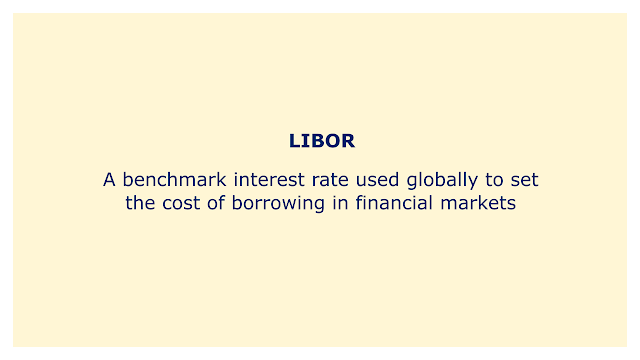 |
| Image: Moneybestpal.com |
The London Inter-Bank Offered Rate (LIBOR) is a benchmark interest rate used globally to set the cost of borrowing in financial markets. It is determined using the average interest rate that London-based banks are prepared to lend to one another in the wholesale money market.
The rates are calculated for a range of maturity periods, from overnight to one year, and are released by the Intercontinental Exchange on a daily basis (ICE).
For financial items including loans, bonds, derivatives, and other financial products, the LIBOR rate serves as a crucial reference rate. When calculating the interest rates on mortgages, credit cards, and student loans, it serves as a reference rate. For businesses, governments, and financial institutions to determine how much it will cost to borrow money, the LIBOR rate is also employed.
A large number of financial products use LIBOR as a reference, which contributes to its prominence in the financial markets. As a result, any changes in the LIBOR rate may have a big effect on borrowing costs as well as the overall state of the economy.
Yet, because banks have been manipulating the LIBOR rate recently, there has been controversy around it. A loss of faith in the integrity of the rate resulted from the manipulation, which involved artificially fixing the rate to benefit banks' trading positions. Global regulators have therefore been working to replace LIBOR with different reference rates.
For financial items including loans, bonds, derivatives, and other financial products, the LIBOR rate serves as a crucial reference rate. When calculating the interest rates on mortgages, credit cards, and student loans, it serves as a reference rate. For businesses, governments, and financial institutions to determine how much it will cost to borrow money, the LIBOR rate is also employed.
A large number of financial products use LIBOR as a reference, which contributes to its prominence in the financial markets. As a result, any changes in the LIBOR rate may have a big effect on borrowing costs as well as the overall state of the economy.
Yet, because banks have been manipulating the LIBOR rate recently, there has been controversy around it. A loss of faith in the integrity of the rate resulted from the manipulation, which involved artificially fixing the rate to benefit banks' trading positions. Global regulators have therefore been working to replace LIBOR with different reference rates.
